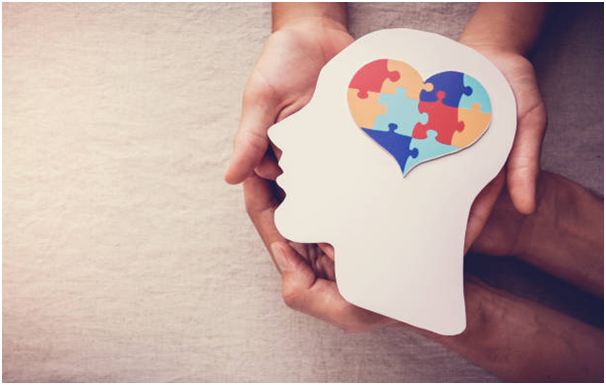What is mental health?
Mental health is a state of wellbeing that involves our emotional, psychological, and social well-being. With positive mental health, we can achieve our potential, work productively, manage the normal stresses of life, have healthy relationships and make a contribution to our community.
Your emotional wellbeing is made up of a combination of your emotional state, mental processes and social functioning. If you are mentally healthy and well, this helps you to see clearly, work efficiently, make responsible decisions, learn from mistakes, develop learning capabilities and make choices that are beneficial to your personal goals.
What is the importance of talking about mental health?
Mental health is a crucial part of overall health that is often hidden from society. This stigma persists, creating more people living with mental illness. So, why does mental health matter? Mental health matters because it helps ensure we are more productive in our everyday lives. It also helps with how we deal with tough times and face issues that may arise in life. It’s important to understand how to maintain positive mental health so you can thrive as an individual and a community member!
Everyone talks about physical health, and for good reason. Physical ailments and diseases are common. But what about mental health? You could say that it’s a little harder to notice when someone is having mental distress, because the signs tend to be a little less visible than injury and illness. Talking about mental health is important for a number of reasons. When we talk about mental health we help eliminate the stigma of mental illness, and those suffering from it are more likely to seek help and learn coping mechanisms. Having honest conversations about mental health helps members improve their overall wellbeing by helping them maintain a state of good mental health that in turn improves their community.
What are the signs and symptoms of the most common mental health conditions?
Mental illnesses vary from person to person. Some symptoms, however, are common. How much of a role each plays differs from person to person. The earliest signs that something might be wrong include:
- Eating or sleeping too much or not enough.
- Excessive use of alcohol, drugs or tobacco.
- Struggle more with friends and family.
- Considering hurting yourself or other people.
- Feeling exhausted with low or no energy
- Feeling apathetic
- Feeling desperate and helpless.
- Negative feelings that just won’t go away, such as feeling sad or irritable for long periods of time.
- Experiencing excessive amounts of anger, anxiety, confusion, fear, forgetfulness, and worry
- Experiencing extreme mood swings that negatively impact relationships
- Experiencing unexplained physical pain
- Hearing voices or having delusional thoughts
- Withdrawing from other people and social activities
- Being unable to do your daily tasks
How to sustain positive mental health?
Try these proactive ways to maintain positive mental health:
Exercise. Exercising regularly has many well-known health benefits. It can also help you feel more in control of your own life, more able to deal with stress, and more able to cope with problems when they arise.
Getting adequate sleep. Sleep loss is associated to depression and negative mood. Learn how to cope. To maintain a healthy mind, get plenty of sleep.
Establish connections with others “in person and online“. People who are isolated from family, friends or community are more likely than others to be isolated. Connections are important to your mental health. Family and friends can play a role in supporting your mental health, but sometimes you may need more support than they can provide. Join and participate in groups or activities that help you connect with people facing similar life circumstances.
Speaking with a Mental Health Professional. Talking with a doctor or mental health professional is not always easy. But if you have symptoms of mental illness like depressed mood, difficulty sleeping, changes in appetite or energy level, removal of friends and activities you once enjoyed, feeling agitated and keyed up, or thinking that life isn’t “worth living,” it’s important to seek help as soon as possible.
What We Can Do to Help
Despite the prevalence of mental illness within our communities, it is often met with incorrect perceptions and prejudice. What can we do to support people with mental illness?
If someone you know is struggling with a mental illness, consider following tips to help them seek treatment:
- Acknowledging mental health is an important, strong first step in supporting your friend or family member with a mental illness. It is difficult for someone with a mental illness to seek help if he/she does not feel like it is perceived as acceptable. The stigma surrounding mental health will only continue as long as mental disorders are treated differently than physical illnesses or dysfunctions.
- There are many things you can do to help. First and foremost, listen to the voices of young people. See the person behind the mental health issues and be encouraged by sharing a common faith. Learn what these individuals have experienced and think about how you can help support them as they recover.
- We should learn more about mental illness that affects so many of our family, friends, and neighbours. We could help by making mental disorders a part of our everyday conversations, understanding that those suffering are not bad or crazy, but are living with a brain illness that must be treated with love and compassion.








